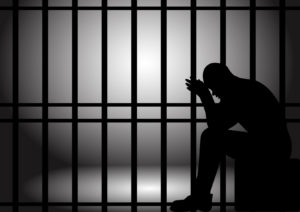 Waiting. I have to say that waiting is one of the most difficult things that we have to do. There’s a verse about waiting that we like to quote. “But those who wait on the Lord will renew their strength…” We like to remind ourselves that once the wait is over, it will all be OK. But what about during the wait? What happens while you wait? How well do you wait?
Waiting. I have to say that waiting is one of the most difficult things that we have to do. There’s a verse about waiting that we like to quote. “But those who wait on the Lord will renew their strength…” We like to remind ourselves that once the wait is over, it will all be OK. But what about during the wait? What happens while you wait? How well do you wait?
There are several characters in the Bible that I can identify with. For a while, I really identified with David. Musician, lowly shepherd, but destined to be a king. I could relate to that. But I think that the person I have been able to relate the most with would be Joseph. Not the earthly father of Jesus. The son of Jacob. It’s interesting to me how the Bible doesn’t record everything.
As I was reading through the story of Jacob this week, I realized something. The Bible leaves a lot of things out. Details. Things I think I would have found fascinating. It’s interesting to me how the Bible just doesn’t record everything I want to know. And as I read through the Bible, sometimes I have questions that aren’t answered.
You can tell that God is a man because he communicates like a man. He boils what he tells us in his word down to the important things. Only the “need to know” kinds of things. For example, he spends only two chapters of the Bible covering the story of creation. I personally would love to have some insight into God’s thought process during creation. “And then God created the Mouflon. Since he had already created the antelope and had given it straight horns, God thought to himself ‘I shall create an animal which has curved horns! Not only shall they curve, but I shall add a corkscrew twist to them as well!'”. Wouldn’t it have been cool to have had a little more detail about some of the events of creation? But an event like creation is given two chapters of the Bible.
When we get to the story of Joseph in chapter 37 of Genesis, however, the Bible sets aside 13 chapters to his story! And an interesting story it is too! The favorite son of his father is sold into slavery by his own brothers. He is bought by an influential and powerful man in a foreign country and is given great responsibility in that man’s house. But he is falsely accused of wrongdoing and is thrown into prison. After several years in prison, he receives a pardon and is promoted to be the second most powerful man in the entire country. And this isn’t just any country. This is Egypt, the most powerful nation in the world at that time!
I have often felt like Joseph. I can relate. Early in my life I was comfortable, living at home, safe, secure and had little to worry about. There were times when I felt that I had been sold into slavery and didn’t know what the future held for me. I have felt trapped by my circumstances. But, like Joseph, I have been successful at nearly everything I have attempted in life. I was able to overcome my fear of the unknown and have been “delivered” by God. I have been placed into positions of power and authority. Like Joseph, I too have been wrongly accused of things in life and have suffered punishment for things that I did not do. But the thing about Joseph that I most closely associate with is his time in prison.
 The Bible doesn’t specify how long Joseph was in prison, but I imagine that regardless of the length of time, Joseph was rather uncomfortable. He knew that he shouldn’t have been there. In spite of being put in charge of the prison, he knew that he had the skill and experience to be more than he was – to do more than he was doing. And yet he was in prison. And he was there because of something completely out of his control. He had done nothing wrong but was in prison nonetheless. Day after day he waited to see what God would do. Would this be the day that God would vindicate him? Would the people who had done this wrong to him ever find out that he was innocent? How long would he remain in this place in his life? I suppose at times Joseph must have questioned everything. Am I here because I deserve it? If I had only not gone in to clean her room, she wouldn’t have grabbed my shirt that day! Should I have avoided her more than I did? I knew she was after me. Do I deserve to be where I am? And to all of these question, he maintained his innocence. He had to. Deep down, he knew his own motives. And yet… here he was. In prison. Waiting.
The Bible doesn’t specify how long Joseph was in prison, but I imagine that regardless of the length of time, Joseph was rather uncomfortable. He knew that he shouldn’t have been there. In spite of being put in charge of the prison, he knew that he had the skill and experience to be more than he was – to do more than he was doing. And yet he was in prison. And he was there because of something completely out of his control. He had done nothing wrong but was in prison nonetheless. Day after day he waited to see what God would do. Would this be the day that God would vindicate him? Would the people who had done this wrong to him ever find out that he was innocent? How long would he remain in this place in his life? I suppose at times Joseph must have questioned everything. Am I here because I deserve it? If I had only not gone in to clean her room, she wouldn’t have grabbed my shirt that day! Should I have avoided her more than I did? I knew she was after me. Do I deserve to be where I am? And to all of these question, he maintained his innocence. He had to. Deep down, he knew his own motives. And yet… here he was. In prison. Waiting.
And then, one day, he sees a chance. He is able to interpret the dreams of two of the prisoners. Through the interpretations, he discovers that one of the prisoners will soon be freed. He asks the prisoner to not forget Joseph when he is set free. Just as he predicted, the prisoner is set free. I can imagine that in the following days Joseph must have sat by the door waiting for the guard to call his name. Every movement in the prison corridors was imagined to be someone coming for him. Surely, this was his opportunity. He would not be forgotten. This was his chance at freedom again. But two more years went by before he was remembered. So during this time, Joseph waited. Of course, he didn’t have an option. He was in prison. If you had asked Joseph about his life while he was in prison, he would have had a different story to tell than he would have in just a few more years. I think that we sometimes tend to tell our story before it’s over. Our story is much different while we’re waiting.
How did Joseph feel while he was in prison waiting for the deliverance that God would ultimately provide? What was he thinking all those years? He didn’t know what God had in store for him like we do. He didn’t know God’s timing with the famine like we do. All he knew was that he was in prison for something he didn’t do. He didn’t know if or when he would ever get out. So he had to wait. He had no other option. He had no choice but to trust that God would make everything right. While he waited, he used the resources that God had given him: The unique ability to interpret dreams. Who would have thought that such a gift would have been his ticket to greatness? God knew. Joseph didn’t.
 I find myself in Joseph’s prison often. Feeling like I’m being punished for something of which I am innocent. Having no option but to wait. No other choice. I’m just waiting on God to vindicate me. Like Joseph, I don’t know what God has in store for me. I don’t know the timing of what he has planned for me. I don’t know if or when I will be free. So I wait. Because I have to. I have no choice but to trust that God will make everything right. If you were to ask for my story during this time, it would be one of woe, doom, and despair. But my story isn’t over. Not yet. God has a plan for my life. I don’t know how it will work out, but I know it will. So I wait. How well do I wait? Do I use the gifts that God has given me, no matter how small or insignificant they may seem? Who knows when something I do or say will be the ticket to God’s purpose for my life?
I find myself in Joseph’s prison often. Feeling like I’m being punished for something of which I am innocent. Having no option but to wait. No other choice. I’m just waiting on God to vindicate me. Like Joseph, I don’t know what God has in store for me. I don’t know the timing of what he has planned for me. I don’t know if or when I will be free. So I wait. Because I have to. I have no choice but to trust that God will make everything right. If you were to ask for my story during this time, it would be one of woe, doom, and despair. But my story isn’t over. Not yet. God has a plan for my life. I don’t know how it will work out, but I know it will. So I wait. How well do I wait? Do I use the gifts that God has given me, no matter how small or insignificant they may seem? Who knows when something I do or say will be the ticket to God’s purpose for my life?
How well do you wait? Do you use the gifts that God has given you, no matter how small or insignificant they may seem? Do you feel you have no option but to wait? Do you feel trapped by circumstances? Wait. Trust. Believe. Who knows when something you do or say will be the ticket to God’s purpose for your life? Don’t tell your story before it’s over. Wait well, my friend.
Follow me on twitter for leadership and church growth content!




 I suppose this post couldn’t come at a better (or worse) time. This past week we have seen two African-American men killed by police and a sniper kill 5 policemen in Dallas, TX. It seems that racial tensions are at an all-time high. Even in the church! And that’s where I want to focus our attention this week. You see, the church has a desire to be diverse. Even in times of racial division, the church has a desire to be culturally diverse. According to a survey by LifeWay Research, 85% of all Protestant pastors believe that the local church should strive to be racially diverse. Yet that same survey showed that only 13% of Protestant churches actually had more than one predominant racial or ethnic group in their congregation.
I suppose this post couldn’t come at a better (or worse) time. This past week we have seen two African-American men killed by police and a sniper kill 5 policemen in Dallas, TX. It seems that racial tensions are at an all-time high. Even in the church! And that’s where I want to focus our attention this week. You see, the church has a desire to be diverse. Even in times of racial division, the church has a desire to be culturally diverse. According to a survey by LifeWay Research, 85% of all Protestant pastors believe that the local church should strive to be racially diverse. Yet that same survey showed that only 13% of Protestant churches actually had more than one predominant racial or ethnic group in their congregation. Let’s begin by creating a little diversity in THE church, not necessarily your church. How can we create diversity while at the same time preserving unity? Start by reaching out to churches who are different than you. Here are 3 simple ideas that will work for creating both diversity and unity in the church:
Let’s begin by creating a little diversity in THE church, not necessarily your church. How can we create diversity while at the same time preserving unity? Start by reaching out to churches who are different than you. Here are 3 simple ideas that will work for creating both diversity and unity in the church: As I was looking over some articles recently that were discussing some of the current trends in Christianity and the church, I started thinking: What were the trends a decade ago? What was happening then that led to where we are today? Have any of the predictions about the state of the future church come true? I dug a little deeper and was able to find some interesting data regarding the church in 2005 – 2006. Here are some of the statistics and trends related to Christianity and the church:
As I was looking over some articles recently that were discussing some of the current trends in Christianity and the church, I started thinking: What were the trends a decade ago? What was happening then that led to where we are today? Have any of the predictions about the state of the future church come true? I dug a little deeper and was able to find some interesting data regarding the church in 2005 – 2006. Here are some of the statistics and trends related to Christianity and the church: